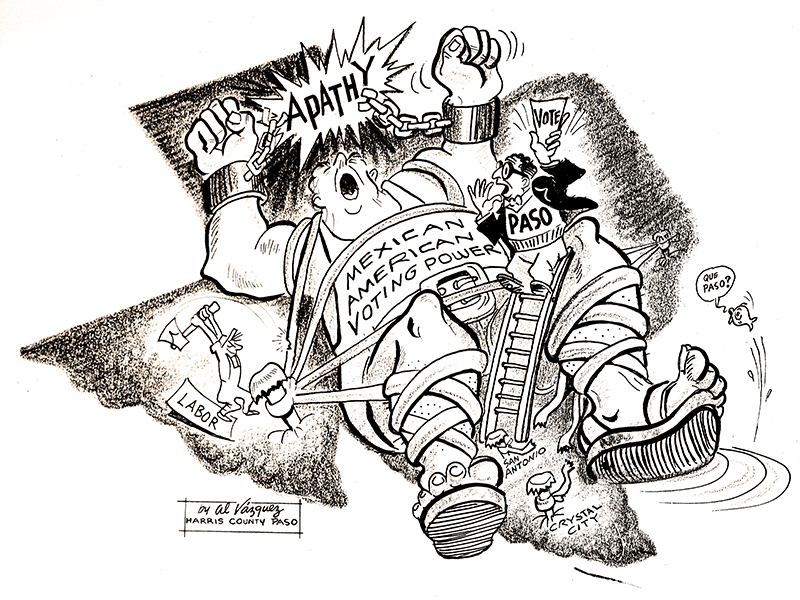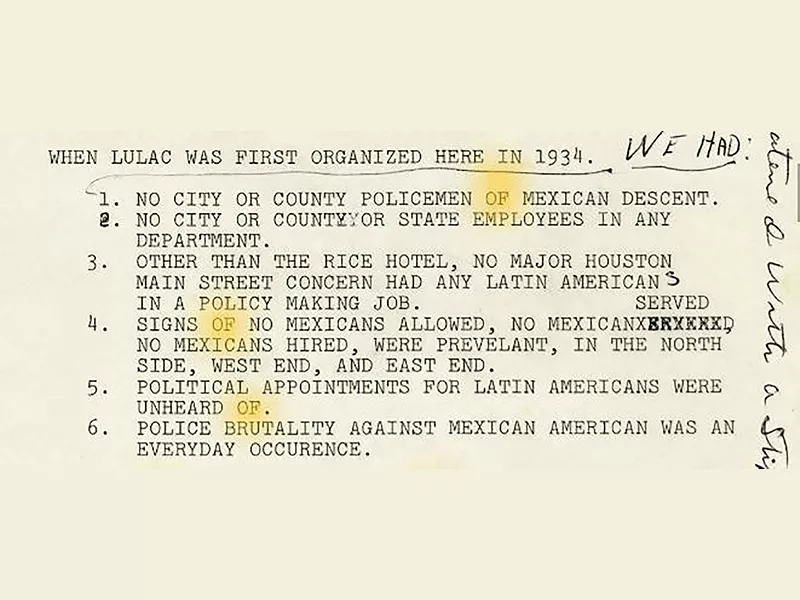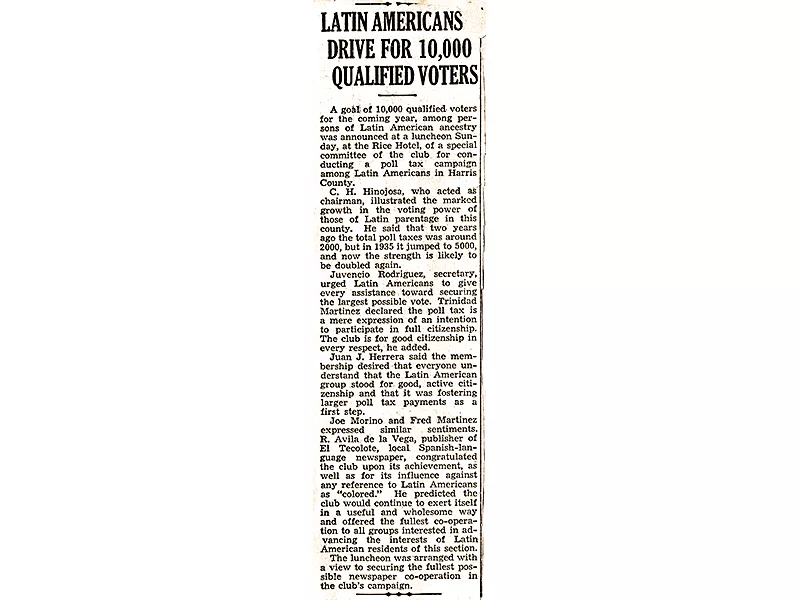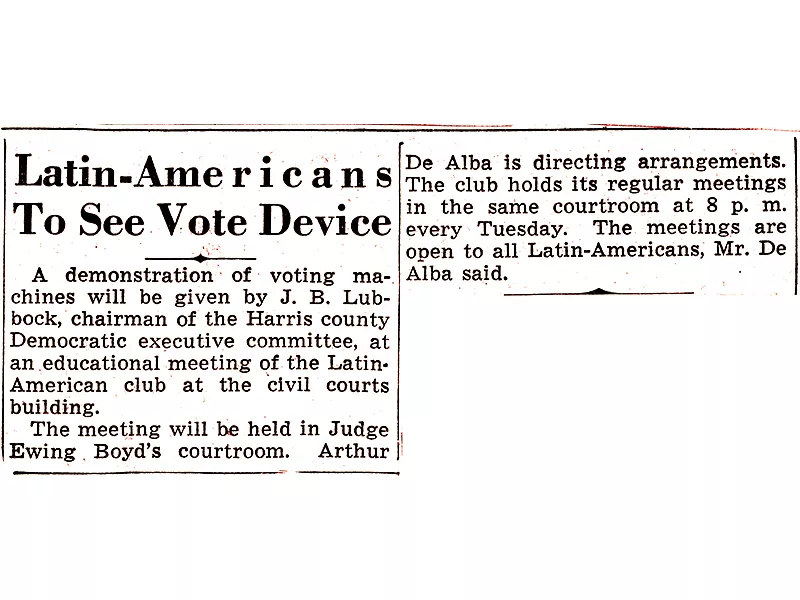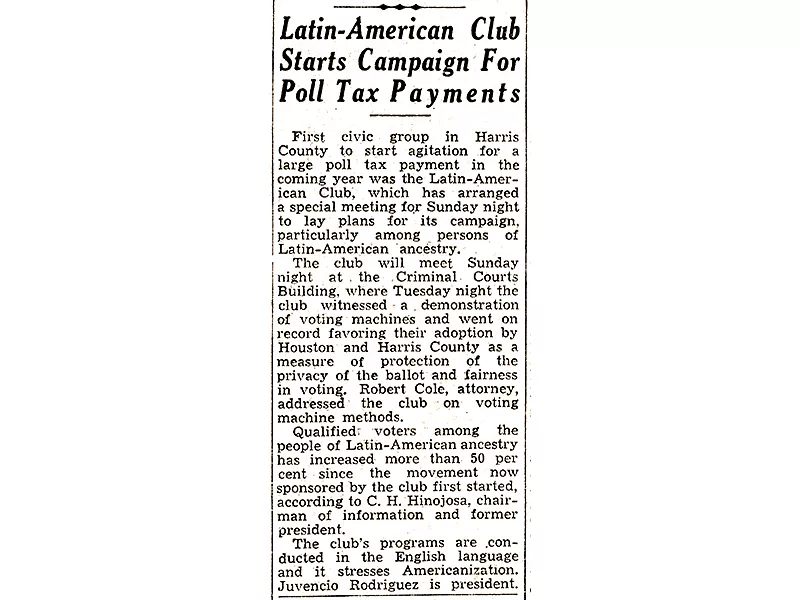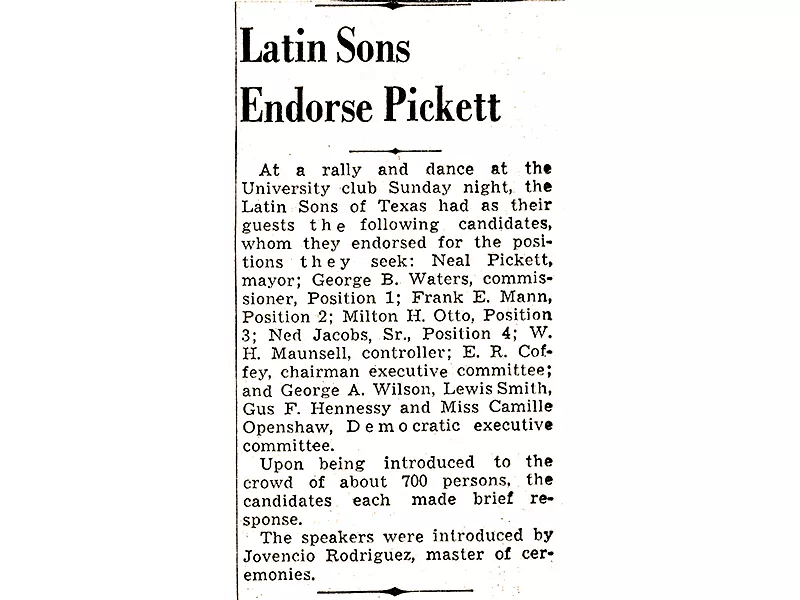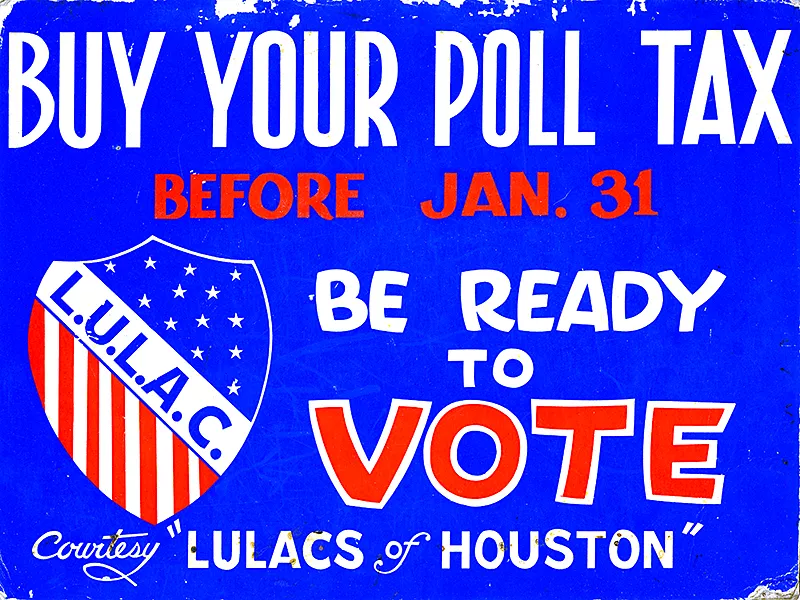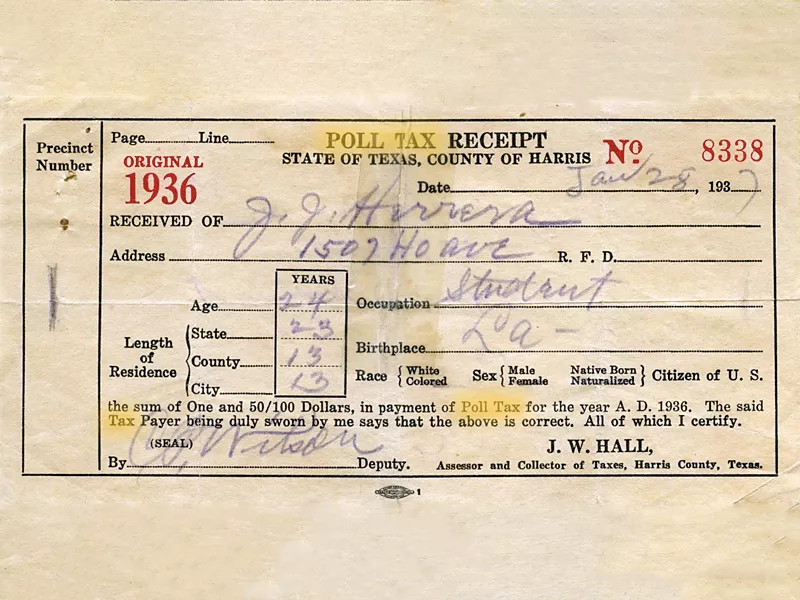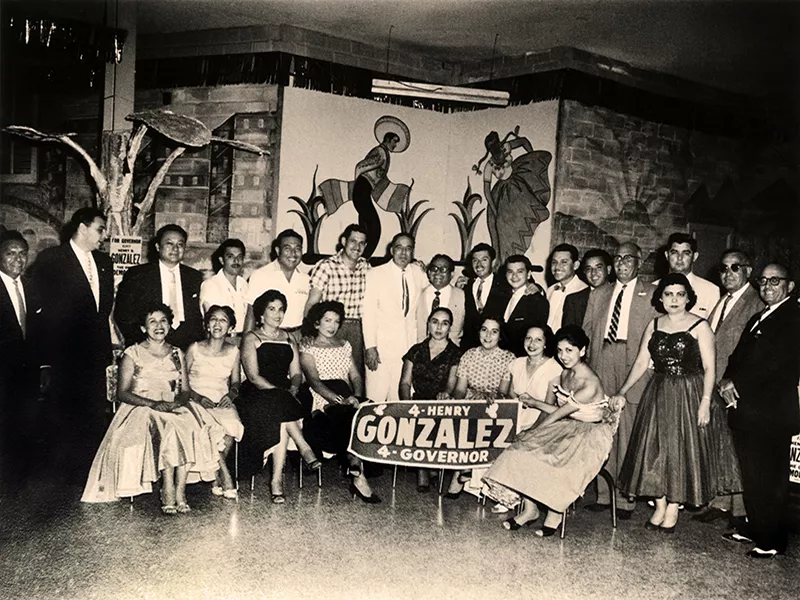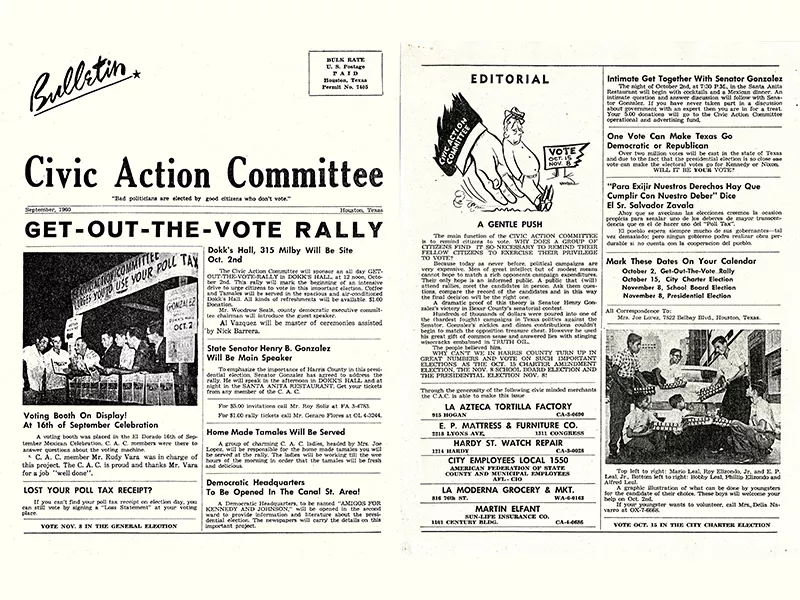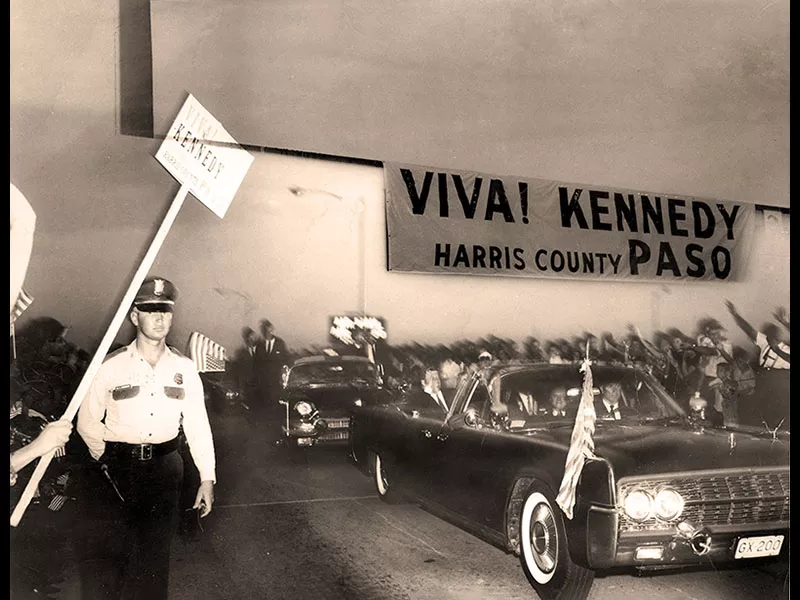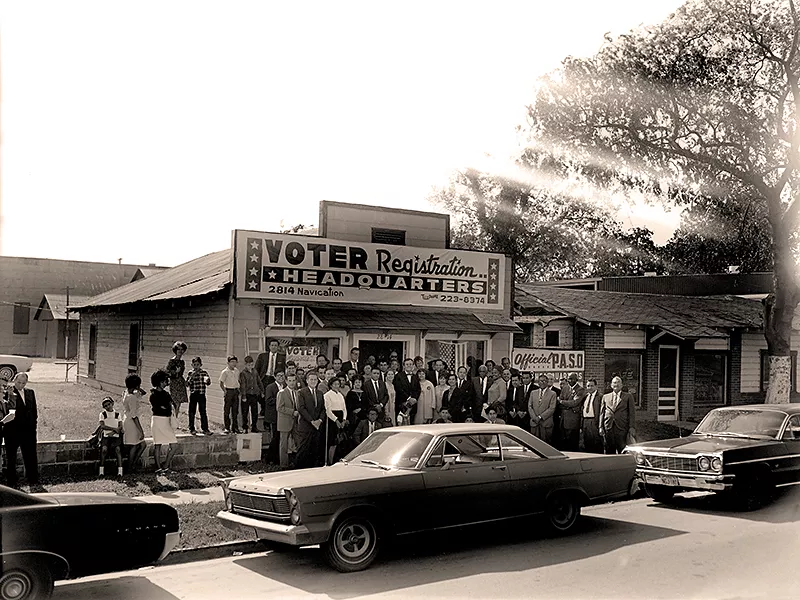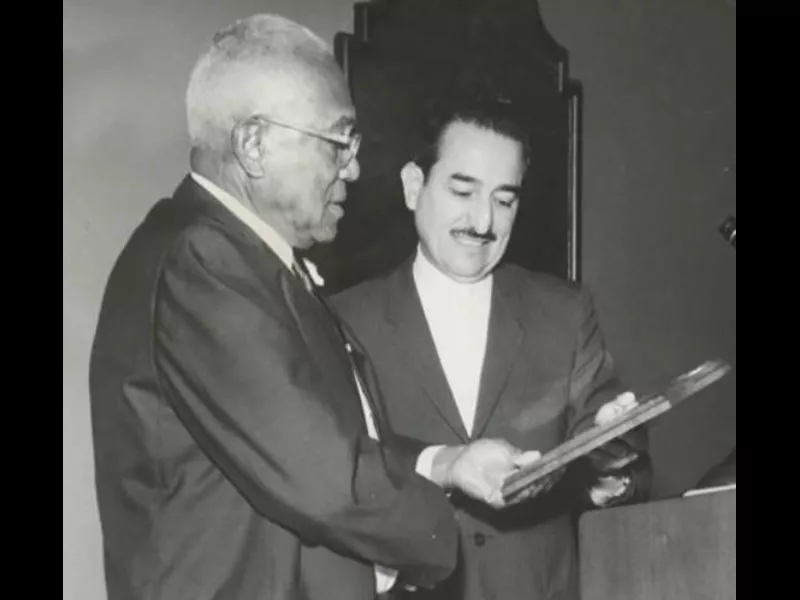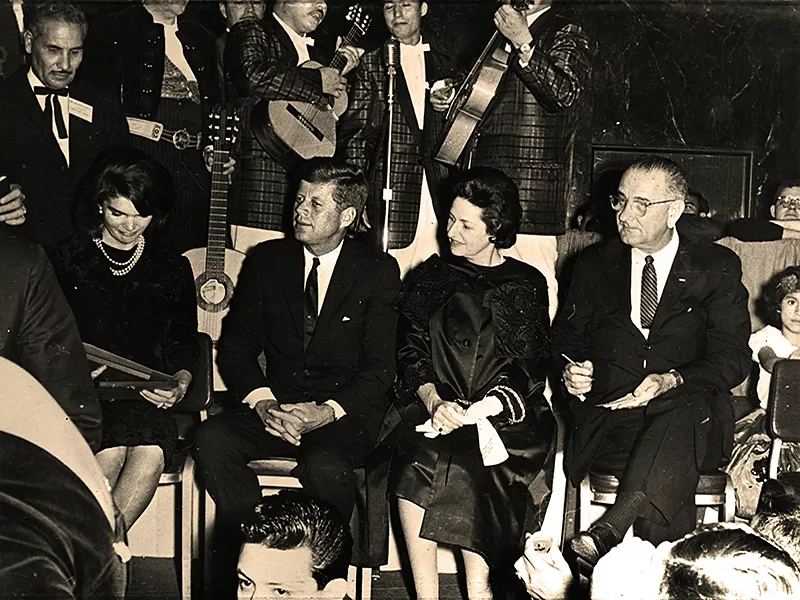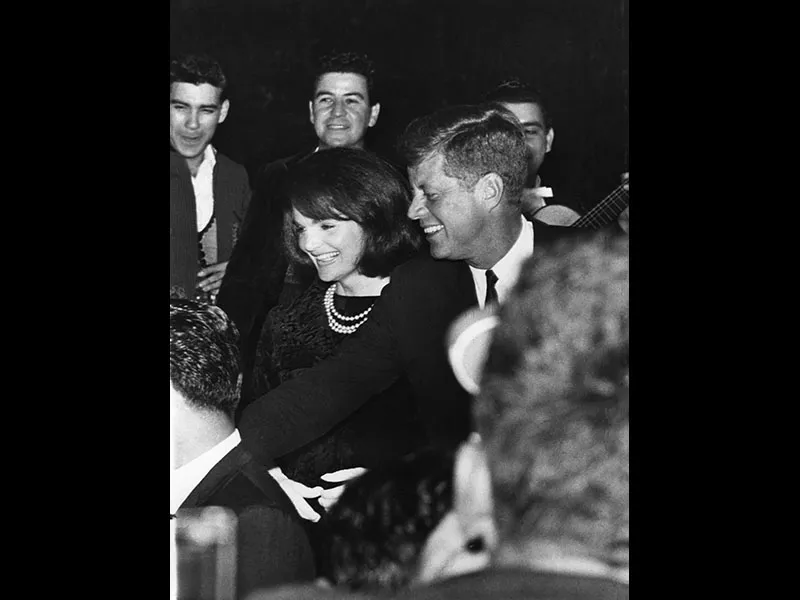The power of the Latino vote today has its roots in Mexican American engagement of the pre-World War II era. In 1935 the Latin American Club of Houston held voter drives aiming to reach 10,000 qualified Hispanic voters. Over the next 25 years, despite a $1.50 poll tax designed to prevent minority voter participation, Houston organizations such as the League of United Latin American Citizens Council 60 (LULAC), the Civic Action Committee (CAC) and the Political Association of Spanish Speaking Organizations (PASSO) sought to empower Latino Houstonians to use their voice and their vote. By the 1960 presidential election Latino voters would come out in unprecedented numbers to influence politics on the national stage electing John F. Kennedy to the United States Presidency. His visit to Houston three years later would officially acknowledge Latinos as an important voting bloc.
“…what we were trying to do was to let the word spread like when you drop a rock into still water and let the little waves begin to spread out, and it was just exactly what happened. Although we were just a little rock, we were making waves.” – Interview with Alfonso Vazquez, September 26, 1978
Listen to the full interview and more
John J. Herrera Speech, Feb. 13, 1971
Excerpt from a draft of a speech by John J. Herrera given during National LULAC Week on February 13, 1971 at Rice Hotel in Houston, Texas. Herrera recalls the status of the Hispanic community in Houston in the 1930s. - MSS0160 John J. Herrera Papers
John J. Herrera, President LULAC
John J. Herrera (1910-1986), past President of League of United Latin American Citizens, practiced law in Houston from 1943 to 1986 and was a leading civil rights advocate for Mexican Americans in Texas.
Latin Americans Drive for 10,000 Qualified Voters
News clipping “Latin Americans Drive for 10,000 Qualified Voters,” circa 1938. - MSS0161 Juvencio Rodriguez Collection Box 1, Folder 6
Latin Americans To See Vote Device
Latin-American Club Starts Campaign for Poll Tax Payments
Latin Sons Endorse Pickett
Buy Your Poll Tax
Pay your poll tax drives
Harris County poll tax receipt for John J. Herrera,
Henry B. Gonzalez Campaign rally
Henry B. Gonzalez
Civic Action Committee Bulletin, September 1960
Civic Action Committee (CAC
President John F. Kennedy with banner
Viva Kennedy (and Viva Johnson) clubs
Political Association of Spanish Speaking Organizations (PASO)
PASO headquarters, circa 1960s
Roy Elizondo, State PASO Chairman, and Moses Leroy noted labor and Civil Rights leader
LULAC banquet at Rice Ballroom, November 21, 1963
President John F. Kennedy and First Lady Jacqueline Kennedy with Vice President Lyndon B. Johnson and Lady Bird Johnson at Houston LULAC banquet at Rice Ballroom, November 21, 1963. -MSS0255.022 Alex Arroyos / John F. Kennedy Collection
President John F. Kennedy 1963, LULAC reception
On November 21, 1963, President John F. Kennedy attended a reception in Houston, Texas sponsored by the League of United Latin American Citizens (LULAC). That night is widely recognized as the first time a U.S. president acknowledged Latinos as a significant voting bloc.
50TH Anniversary JFK/LULAC Memory Project
For more images from this historic night in Houston browse the Alex Arroyos / John F. Kennedy Collection and Listen to interviews from the 50TH Anniversary JFK/LULAC Memory Project

